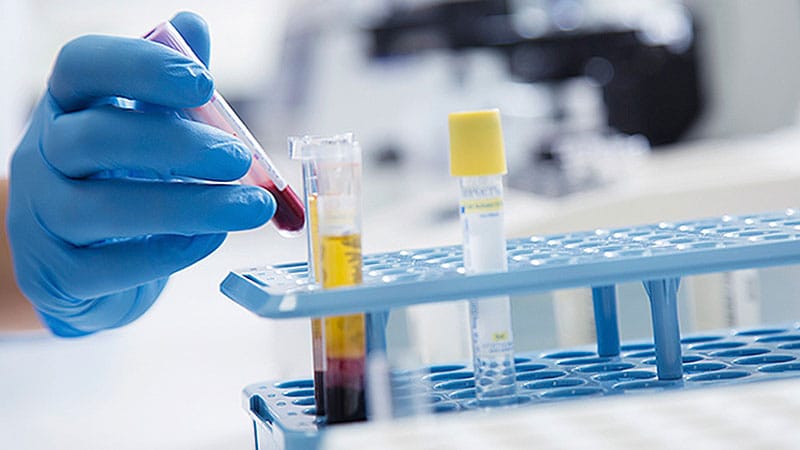Understanding Breast Cancer Risk and Family History Impact
Core Concepts
Family history impacts breast cancer risk.
Abstract
The study explores how family history affects the risk of developing breast cancer in individuals with pathogenic cancer syndrome variants. Key findings include:
- Family history plays a significant role in the risk associated with pathogenic variants.
- First-degree family history increases the risk of breast cancer in carriers of pathogenic BRCA1 and BRCA2 variants.
- Penetrance to age 60 is higher in individuals with a first-degree family history.
- Lynch syndrome patients with a family history have a higher risk of colorectal cancer.
- Recommendations include considering family history in counseling patients on follow-up care.
- Universal policies on returning pathogenic cancer predisposing genetic variants should consider family history.
- Overmanagement of asymptomatic individuals without a family history of disease should be avoided.
Customize Summary
Rewrite with AI
Generate Citations
Translate Source
To Another Language
Generate MindMap
from source content
Visit Source
www.medscape.com
Preventing Breast Cancer Overtreatment
Stats
"After researchers controlled for sex, death, recruitment center, screening, and prophylactic surgery, those with a pathogenic BRCA1 (n = 230) or BRCA2 (n = 611) variant had an increased risk of breast cancer, and the risk was higher in those with a first-degree family history (relative hazard, 10.3 and 7.8, respectively), than in those without a first-degree family history (relative hazard, 7.2 and 4.7), the investigators reported."
"Penetrance to age 60 years was also higher in those with vs. without a first-degree family history (44.7% and 24.1% vs 22.8% and 17.9%, respectively)."
"Similarly, patients with Lynch syndrome and a pathogenic MLH1, MSH2, or MSH6 variant (n = 89, 71, and 421, respectively) had an increased risk of colorectal cancer, and that risk was higher in those with vs. without a family history (relative hazard, 35.6, 48.0, and 9.9 vs. 13.0, 15.4, and 7.2)."
"Penetrance to age 60 was higher for those with a pathogenic MLH1 and MSH2 variant with vs. without a family history (30.9% and 38% vs. 20.5% and 8.3%)."
Quotes
"This difference in penetrance in carrier individuals, if replicated in larger studies, could be sufficient to justify stratifying just individuals with a family history into high-risk groups currently eligible for specialist clinical care." - Leigh Jackson, PhD
"It will be very difficult to counsel individuals as to their particular risk profile without further pedigree construction or investigations." - Study Investigators
Key Insights Distilled From
by Sharon Worce... at www.medscape.com 09-20-2023
http://www.medscape.com/viewarticle/996632
Deeper Inquiries
How can genetic testing be optimized to consider family history in assessing breast cancer risk?
Genetic testing can be optimized by incorporating detailed family history information into the assessment of breast cancer risk. By analyzing not only the presence of pathogenic variants but also the family history of first-degree relatives, healthcare providers can better stratify individuals into high-risk groups that may benefit from specialized care. This personalized approach can help prevent overtreatment in individuals without a significant family history of cancer, ensuring that resources are allocated efficiently to those who truly need them.
Is there a risk of underestimating the impact of family history on cancer risk in current medical practices?
There is a potential risk of underestimating the impact of family history on cancer risk in current medical practices. The findings from the study suggest that individuals with pathogenic cancer syndrome variants but without a first-degree family history may have a lower risk of developing cancer compared to those with a family history. Failing to consider family history in genetic testing and risk assessment may lead to the misclassification of individuals as high-risk when they may not actually be at significantly elevated risk. This could result in unnecessary surveillance, invasive procedures, and emotional distress for patients.
How can the findings of this study influence public health policies regarding genetic testing and cancer prevention?
The findings of this study can have significant implications for public health policies regarding genetic testing and cancer prevention. It highlights the importance of considering family history when interpreting genetic test results and assessing cancer risk. Public health policies should emphasize the need for comprehensive family history collection and analysis in conjunction with genetic testing to provide more accurate risk assessments. By tailoring follow-up care based on both genetic variants and family history, healthcare resources can be allocated more effectively to individuals who are truly at high risk, while preventing unnecessary interventions in those with lower risk profiles. This personalized approach can lead to more efficient use of resources, improved patient outcomes, and better overall public health outcomes.
0
